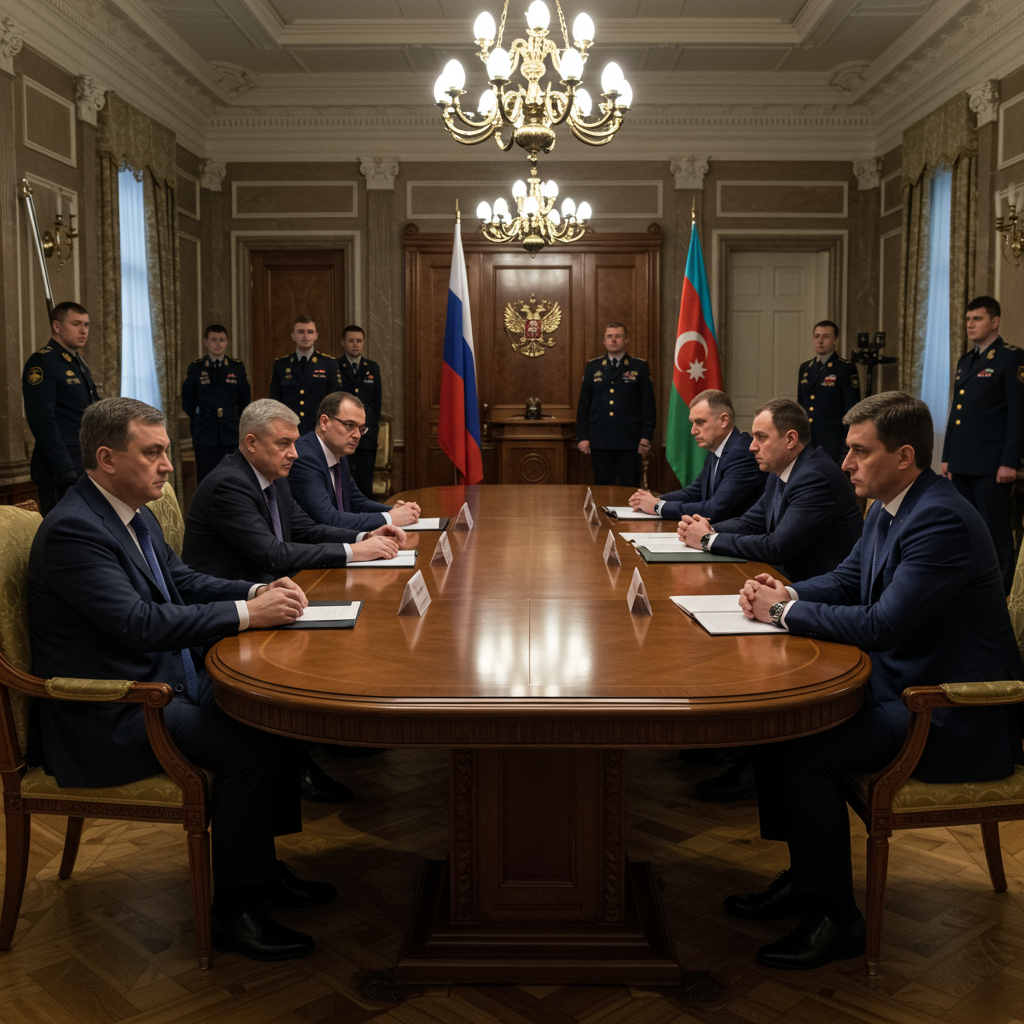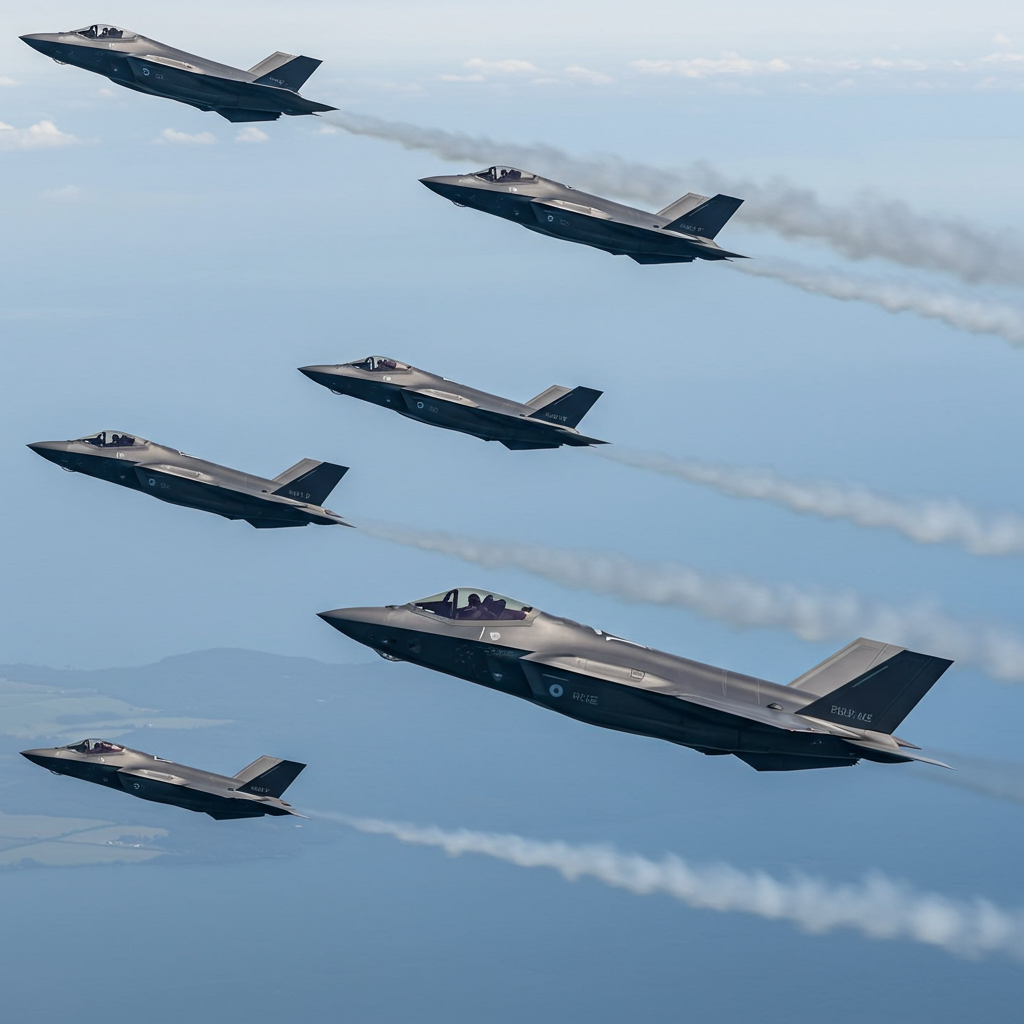Escalating diplomatic tensions between russia and azerbaijan have reached a critical point, highlighted by Moscow’s summoning of Baku’s ambassador. This significant development follows a raid by Azerbaijani police on the local office of sputnik, a Russian state-funded media outlet, accompanied by the detention of its staff. The incident underscores deteriorating relations between the two former Soviet neighbors, prompting a strong rebuke from Russia.
The Russian Foreign Ministry in Moscow did not mince words, leveling accusations of “unfriendly actions” against Azerbaijan. This official condemnation, reported by the Tass news service on Monday, June 30, 2025, signals the seriousness with which Russia views the events in Baku. The raid and subsequent detentions represent a flashpoint in an increasingly strained relationship, where disagreements over political alignment, regional security, and media influence often simmer beneath the surface.
Understanding the Diplomatic Fallout
Summoning an ambassador is a formal diplomatic protest. It signifies deep displeasure and is a clear signal that the host country demands an explanation or a change in the other country’s actions. In this context, Russia’s decision to summon the Azerbaijani envoy is a powerful statement. Moscow is essentially putting Baku on notice, indicating that the raid and arrests are considered a grave matter impacting bilateral ties. Such actions can often lead to a cooling of relations, reciprocal diplomatic measures, or even economic consequences if the situation is not de-escalated.
The move by Azerbaijani authorities to raid the Sputnik office and detain employees has been interpreted by Russia as a direct challenge. Sputnik, like other state-funded media organizations, is viewed by Moscow as an important tool for projecting Russian influence and narrative abroad. Actions against its staff or operations are often met with swift and strong reactions from the Russian government. This specific incident involving Sputnik Azerbaijan highlights the sensitivity surrounding media activities in countries within Russia’s traditional sphere of influence.
The Role of State Media in International Relations
State-funded media outlets like Sputnik play a complex role on the global stage. While they often claim to be independent news organizations, they are widely perceived, particularly by Western countries and increasingly by neighbors, as instruments of state propaganda. Their presence and reporting in foreign countries can become contentious, especially when they are seen as promoting a specific political agenda or undermining local narratives. This perception can make them targets during periods of heightened political tension between nations.
Azerbaijan’s actions against Sputnik Azerbaijan could stem from various domestic or international factors. While Russia frames the arrests as “unfriendly actions” against its media, Azerbaijan might justify its actions based on alleged violations of local laws, licensing issues, or concerns about the content being disseminated. Without specific details from the Azerbaijani side, the exact motivation remains subject to speculation, but the immediate impact on Russia Azerbaijan tensions is undeniable. This incident adds another layer of complexity to their already intricate relationship.
Historical Context and Current Dynamics
The relationship between Russia and Azerbaijan is shaped by centuries of shared history under the Russian Empire and later the Soviet Union. Following the collapse of the USSR in 1991, Azerbaijan gained independence, pursuing a foreign policy that balances ties with Russia, Turkey, Iran, and the West. Russia remains a key regional player, particularly due to its military presence (peacekeepers in Karabakh, though their mandate ended recently and was replaced), economic ties, and historical influence.
However, Baku has increasingly asserted its independence, diversifying its partnerships and pursuing its own strategic interests, particularly after the 2020 Karabakh war. This has sometimes led to friction with Moscow, which prefers to maintain its dominant position in the South Caucasus. Issues like military cooperation, energy transit routes, and the political alignment of post-Soviet states are constant points of negotiation and potential disagreement. The raid on Sputnik Azerbaijan occurred within this broader context of shifting regional dynamics and Baku’s assertiveness.
Analyzing Potential Motivations
From Moscow’s perspective, the raid on Sputnik Azerbaijan appears to be a hostile act aimed at curtailing Russian information influence. Russia often accuses countries taking action against its state media of suppressing media freedom, even as critics point to restrictions on independent media within Russia itself. The choice of targeting Sputnik, a prominent state-backed entity, sends a clear message to Moscow.
Possible underlying reasons for Azerbaijan’s move could include:
Response to Sputnik content: Disagreement or offense taken by Azerbaijani authorities regarding specific reporting by Sputnik Azerbaijan.
Domestic political considerations: Actions linked to internal Azerbaijani politics or a desire to assert sovereignty over foreign media operations.
Geopolitical signaling: A move intended to signal shifts in Azerbaijan’s foreign policy orientation or displeasure with Moscow on unrelated matters.
Enforcement of media regulations: Allegations of Sputnik Azerbaijan failing to comply with local media laws or registration requirements.
Regardless of the specific trigger, the incident has clearly exacerbated existing Russia Azerbaijan tensions. The diplomatic response from Moscow—the summoning of the envoy—underscores that this is not being treated as a minor administrative matter but a significant political confrontation.
Implications for Regional Stability
The South Caucasus region, bordering Russia, Turkey, and Iran, is inherently unstable. Relations between its key players—Armenia, Azerbaijan, and Georgia—are complex and often fraught with tension, particularly following the conflicts involving Nagorno-Karabakh. Both Russia and Azerbaijan are critical actors in this region. Any significant deterioration in their bilateral relations could have wider repercussions.
Potential impacts include:
Security dynamics: Changes in military cooperation or security agreements.
Economic consequences: Potential disruptions to trade or energy projects.
Influence battles: Heightened competition for influence in other regional states like Armenia or Georgia.
Diaspora issues: Impact on the large Azerbaijani diaspora in Russia or the smaller Russian community in Azerbaijan.
The summoning of the envoy represents a formal low point in diplomatic relations. It necessitates dialogue, likely tense negotiations, to prevent further escalation. Both sides will need to carefully weigh their next steps to avoid a more serious breakdown, which could have negative consequences for regional stability. The focus will now be on the nature of discussions between the Azerbaijani envoy and Russian officials in Moscow and any subsequent public statements or actions from either capital.
Frequently Asked Questions
What caused the recent diplomatic tensions between Russia and Azerbaijan?
The primary cause for the recent rise in Russia Azerbaijan tensions was Azerbaijan’s raid on the Baku office of the Russian state-funded media outlet, Sputnik Azerbaijan. During this raid, Azerbaijani police detained members of the Sputnik staff. This action was strongly condemned by Russia’s Foreign Ministry as “unfriendly,” leading Moscow to summon Azerbaijan’s ambassador for an official protest.
What is Sputnik Azerbaijan, and what is its role?
Sputnik Azerbaijan is the Azerbaijani-language branch of Sputnik, an international news agency funded by the Russian government. Its role is to broadcast news and information from a Russian perspective to audiences in Azerbaijan. State-funded media like Sputnik are often seen as instruments of soft power and vehicles for promoting a country’s narrative and interests abroad. Its operations in foreign countries can become politically sensitive, especially during periods of bilateral tension.
What are the potential consequences of deteriorating relations between Russia and Azerbaijan?
Deteriorating relations between Russia and Azerbaijan could have several consequences. Diplomatically, it could lead to further protests or reciprocal actions. Economically, it might impact trade or energy agreements between the two countries. Regionally, increased Russia Azerbaijan tensions could complicate the already complex security landscape in the South Caucasus, affecting dynamics related to issues like the post-Karabakh settlement and regional cooperation. It could also affect citizens of each country residing in the other.
The incident involving Sputnik Azerbaijan and the subsequent diplomatic row serve as a stark reminder of the fragile nature of relationships between former Soviet states and Russia. It highlights the ongoing struggle for influence, the complexities of media freedom in politically charged environments, and the potential for seemingly isolated incidents to escalate into broader diplomatic crises. The coming days will reveal whether dialogue can defuse the situation or if this marks a turning point towards more significant friction between Moscow and Baku.




